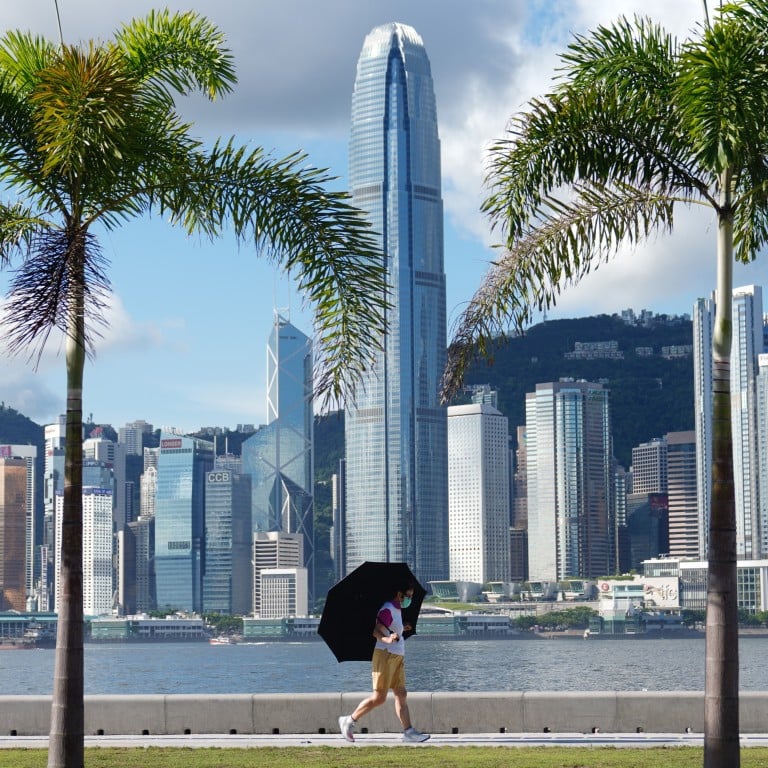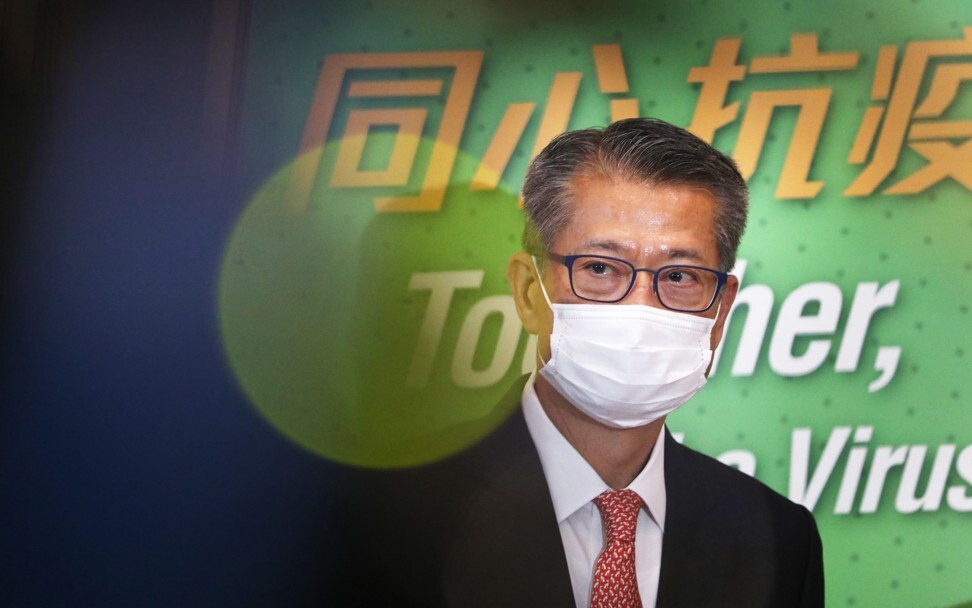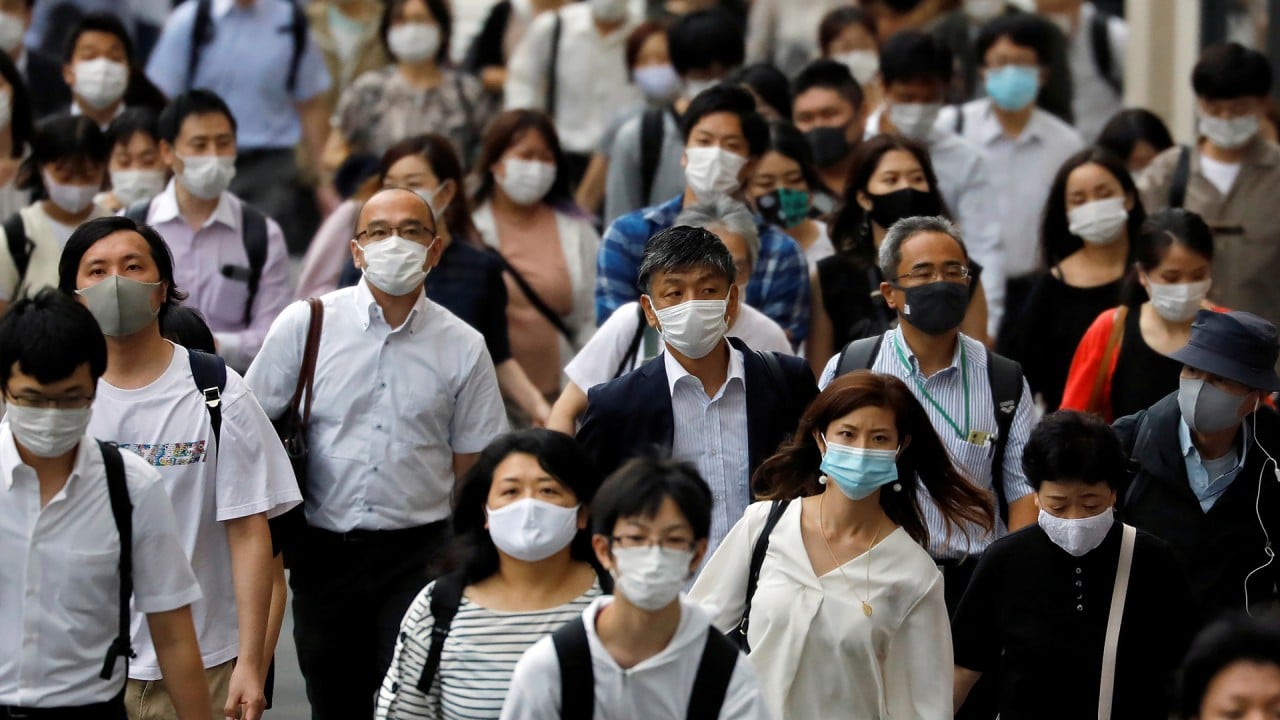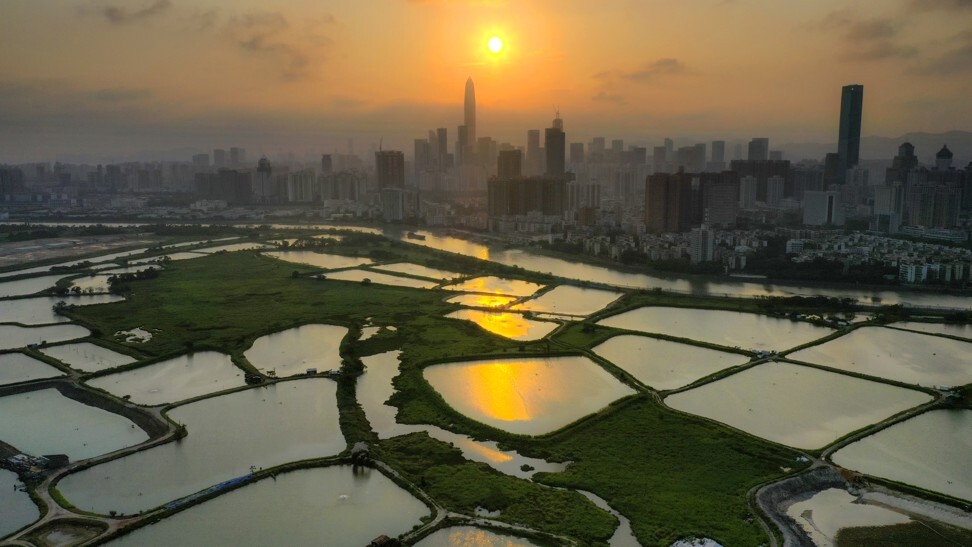
Hong Kong third wave: Financial Secretary Paul Chan warns government handouts won’t last, even as Covid-19 piles more pressure on economy
- Economic conditions likely to be even tougher in third quarter if Covid-19 crisis endures, Chan says
- He warns against long-term reliance on endless government relief measures, looks to Greater Bay Area to help city’s recovery
Predicting conditions were likely to be even tougher for the third quarter if the pandemic was not overcome, Chan said the government could learn from how mainland Chinese authorities handled the health crisis, adding that city officials would continue to work hard to support those struggling during the slowdown.
Hong Kong’s coronavirus-ravaged economy shrinks 9 per cent in second quarter
“But our resources are limited, endless assistance and relief measures cannot be a long-term strategy, or the solution,” he said.
The city has recorded about 2,000 locally transmitted Covid-19 cases since the third wave began early last month.
Sunday was the 12th straight day of triple-digit increases to the city’s case tally, while Saturday marked the deadliest day of the epidemic so far with six related deaths.

In a bid to contain the Covid-19 epidemic in Hong Kong, free citywide testing would be provided for its 7.5 million residents, state broadcaster CCTV reported on Saturday.
Writing in his official blog, Chan thanked the central government for sending personnel to help expand the city’s screening capacity and build temporary quarantine and treatment centres.
“The mainland’s epidemic control and prevention strategies have achieved remarkable results. Many cities have ‘cleared’ all confirmed cases, asymptomatic infections and close contacts requiring medical supervision, allowing people to resume their daily lives,” he said.
“We need to learn from these useful experiences to effectively control the epidemic as soon as possible, so that the public does not have to worry too much about the risk of infection, everyone can return to their daily lives, travel and work.”

07:54
Six months after WHO declared Covid-19 a public health emergency, what more do we know now?
Tech hub Shenzhen barely avoids economic contraction in first half of year
“The huge market in the mainland as well as the Guangdong-Hong Kong-Macau Greater Bay Area will help the city’s economy recover quicker,” he said, adding that similar measures could be extended to the Asia-Pacific region in the future.
The Greater Bay Area refers to Beijing’s plan to turn Hong Kong, Macau and nine neighbouring mainland cities in Guangdong into a financial and technological hub.
Hong Kong leader Carrie Lam Cheng Yuet-ngor on Friday cited the pandemic for postponing the Legislative Council elections by a year. But opposition politicians accused her of only doing so to stop the pro-Beijing camp from losing control of the legislature.

Defending Lam’s decision, Chan said: “Work that is conducive to controlling the pandemic should not be obstructed by political conflicts. The coronavirus will not be eliminated by political controversies ... I hope everyone can set aside their differences and unite in curbing the epidemic.”
Exports of services dropped 46.6 per cent in the second quarter from a year earlier, compared with 37.4 per cent fall in the first quarter.
Retail sales in June declined 24.8 per cent year-on-year, lower than the 32.9 per cent slump in May over the same period.

